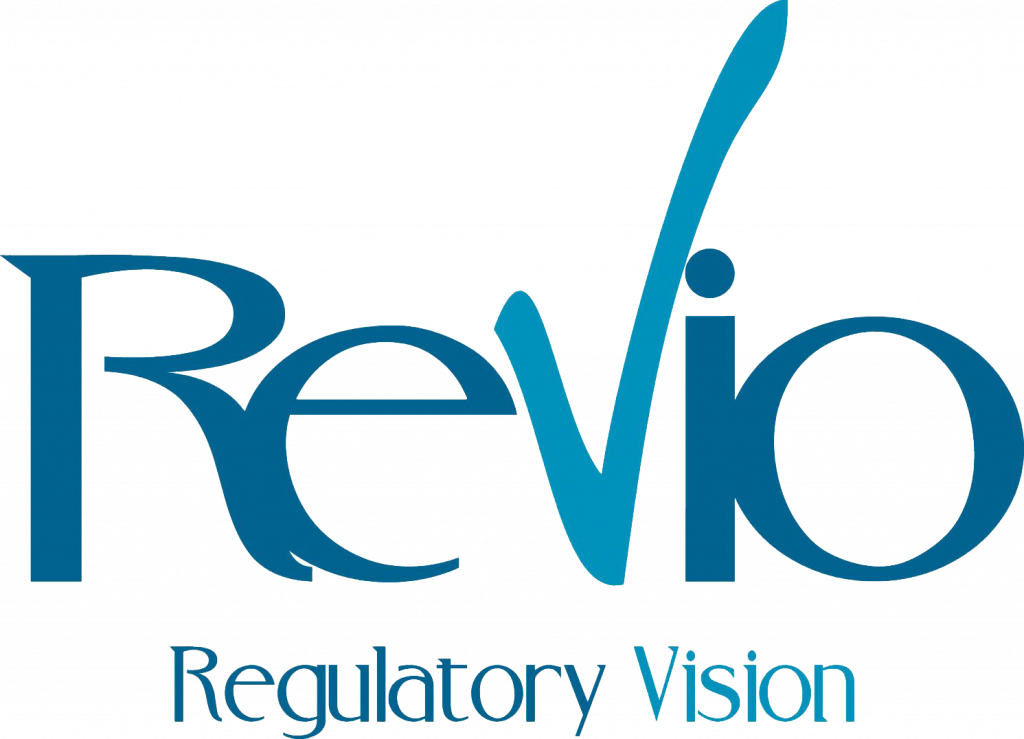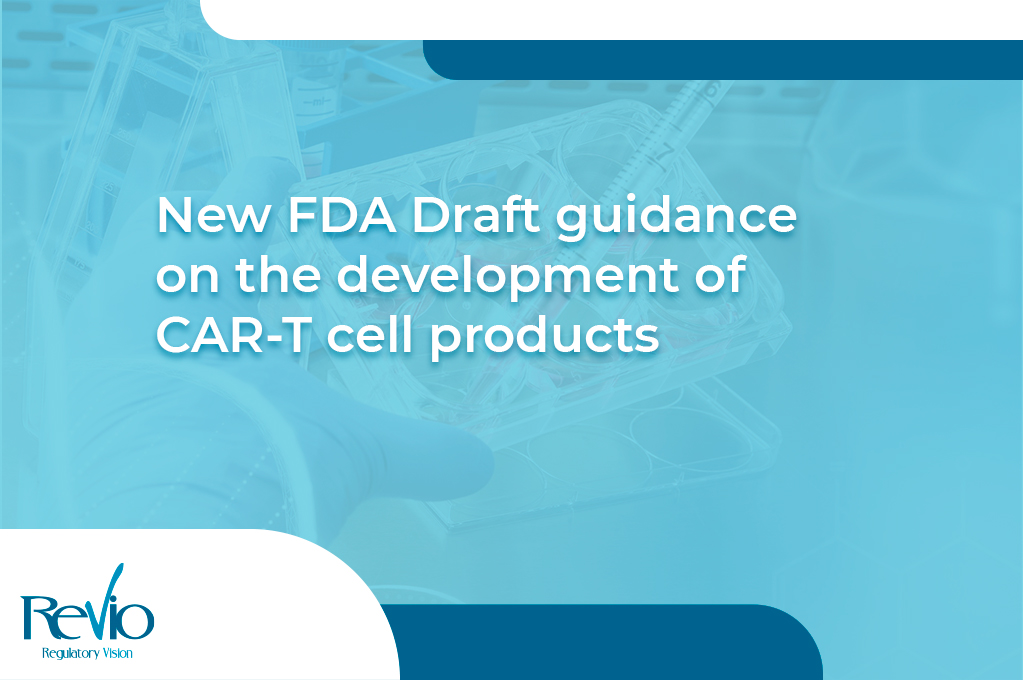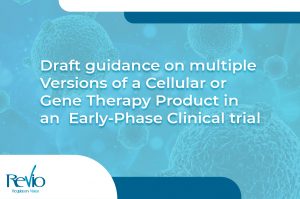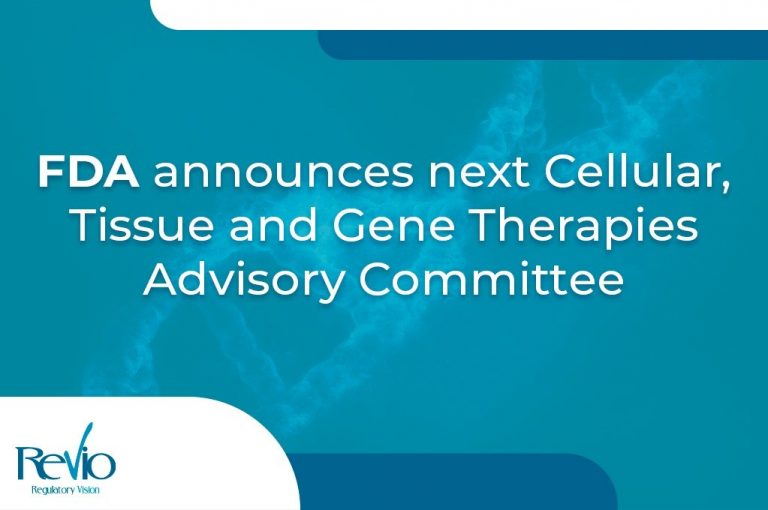Today, from Revio, we would like to share with you a summary on a recent draft guidance document published by the US Food and Drug Administration (FDA): “Considerations for the Development of CAR-T Cell Products”.
Chimeric Antigen Receptor (CAR)-T Cell Products are human gene therapy products in which the T cell specificity is genetically modified to enable recognition of a desired target antigen for therapeutic purposes.
In this guidance, FDA provides CAR-T cell specific recommendations regarding chemistry, manufacturing, and control (CMC), pharmacology and toxicology, and clinical study design. While the guidance is focused on CAR-T cell products, much of the recommendations provided are also applicable to other genetically modified lymphocyte products, such as CAR Natural Killer (NK) cells or T cell receptor (TCR) modified T cells.
Some of the recommendations made in the guidance are:
General Considerations for Design and Development
For CAR-T cells, the vector is a critical component that furnishes a pharmacological activity for the treatment of disease. Vectors that integrate into cellular DNA (e.g., retroviral-based vectors or transposons) can provide long term transgene expression, and because of that, long term follow up is recommended for products that include integrating vectors.
Vectors may express additional functional elements that, for example, allow enrichment of cellular subsets in manufacturing, or modify T cell persistence and/or activity. Sponsors should provide justification and relevant data to support incorporation of any additional elements, including an assessment of any impact on CAR-T cell specificity, functionality, immunogenicity, or safety.
CMC Recommendations
FDA recommends organizing information in the Common Technical Document (CTD) format with the vector CMC information described in a complete Drug Substance (DS) section and the CAR T cell information in a separate DS section and a separate Drug Product (DP) section.
CAR-T cells and vector are to be manufactured under Good Manufacturing Practice (GMP) conditions that are appropriate for the stage of development.
Others specific CMC recommendations are given for:
- Vector Manufacturing and Testing
- Collection, Handling, and Testing of Cellular Starting Material
- CAR T Cell Manufacturing and Testing
- Managing Manufacturing Changes and Assessing Comparability During the CAR T Cell Product Life Cycle
- Single-Site or Multisite Manufacturing
Preclinical Recommendations
The diversity and inherent biological properties of Gene Therapy (GT) products, including CAR-T cells, necessitate a case-by-case testing nonclinical strategy. However, general considerations for preclinical testing have been previously made by the FDA in the Guidance for Industry: Preclinical Assessment of Investigational Cellular and Gene Therapy Products.
In addition to that Guidance for Industry, specific preclinical recommendations in CAR-T cell products are given for:
- Vector Component
- Cellular Component
- In Vivo Testing
- Additional Modifications
Clinical Recommendations
A primary objective of early-phase clinical trials of CAR-T Cell Products should be an assessment of safety. Other objectives may include determination of optimal dosage, pharmacokinetic/pharmacodynamic (PK/PD) studies, evaluation of clinical activity or efficacy or selecting an appropriate population for further clinical studies to investigate efficacy and safety.
To help sponsors meet these objectives, specific clinical recommendations are given for:
- Study Population
- Advances vs. early disease stage
- Tissue-agnostic approach
- Target identification
- Pediatric subjects
- Treatment Plant
- Dose selection, starting dose, and dose escalation
- Repeat dosing
- Staggering
- Consideration for manufacturing delay or failure
- Bridging therapy
- Clinical Pharmacology Considerations
- Pharmacokinetics
- Pharmacodynamics
- Immunogenicity
- Safety Evaluation and Monitoring
- Clinical monitoring
- Toxicity grading
- Dose-limiting toxicities (DLTs), stopping rules and attribution
- CAR T Cell Persistence and Long-Term Follow-up
- Allogeneic CAR T Cells
Check the official FDA website if you want to know more or to consult the complete guideline.
Nevertheless, we have launched a dedicated webpage to bring you the latest updates, guidance and developments. You can also follow us on LinkedIn.
We hope you find this useful and of interest. If you would like to discuss any of these updates with the team at REVIO, please get in touch here.




